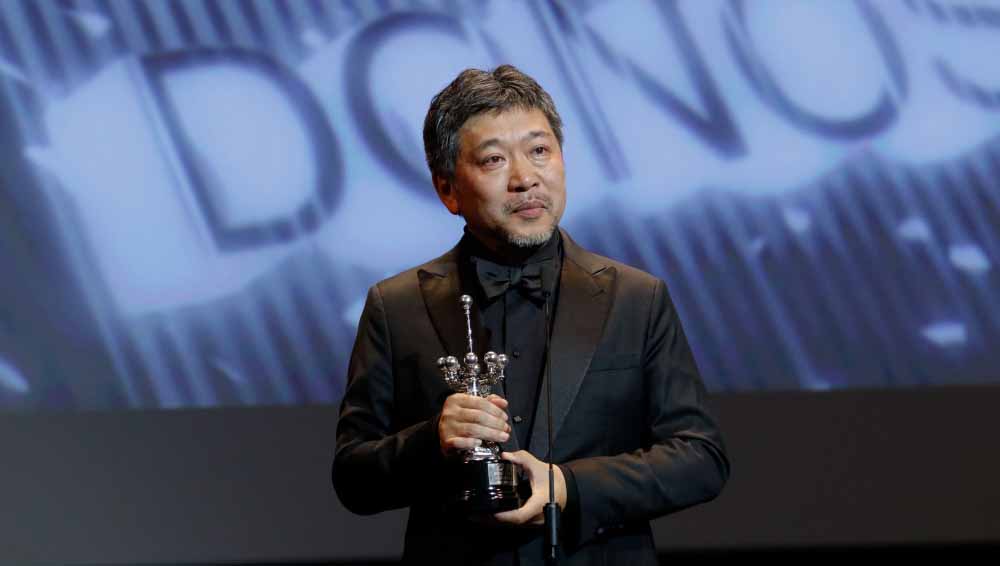Hirokazu Kore-eda on ‘Shoplifters’ Polemics, Shooting in France
By Ben Croll
LOS ANGELES (Variety.com) – When Hirokazu Kore-eda returned to the San Sebastian International Film Festival to accept his Donostia Award on September 23rd, it marked a fitting bit of symmetry for a story that began twenty years earlier.
In 1998, Kore-eda arrived in San Sebastian a promising young upstart with his second feature, the bittersweet mortality drama “After Life,” playing in competition. A critical and audience favorite here, “After Life” helped cement the Japanese director’s reputation as one of the leading international auteurs.
Two decades later, the director returned celebrating another series of milestones, while his career was at another point of inflection. For one, Kore-eda’s stock has never been higher. This past March, his film “The Third Murder” swept the Japan Academy Prizes, taking home top honors in picture, director, screenplay and acting. Two months later, Kore-eda won the Palme d’Or for “Shoplifters,” becoming only the fourth Japanese filmmaker to win at Cannes.
The film would go on to break box-office records in both Japan and China, but don’t expect the director to gloat. “To be honest,” Kore-eda tells Variety, “I am surprised, because I didn’t expect it. I guess the influence of the award the film won at Cannes has been quite big.”
Indeed it has, and that influence has ushered in new challenges. Thanks to its high international profile, “Shoplifters” has inspired both accolades and polemics in the Japanese media, an unexpected development for a director who has tried to keep politics out of his work. Nevertheless, Prime Minister Shinzo Abe infamously gave “Shoplifters” the cold shoulder following its success in Cannes, while high-ranking members of his government took umbrage with the film’s tough-eyed social realism and right-wing commentators harshly criticized it for painting Japanese society in an unflattering light.
Still, the filmmaker takes it in stride. “Presumably,” says Kore-eda,“because of [Japan’s] first Palme d’Or in the last 21 years, the film has been covered by the media more than I imagined and those who usually don’t watch films have also gotten to know about [it], which led to the controversy.”
“It is a mere consequence,” he continues. “In a country where individualism has not been developed yet, it is not rare that people tend to project their ideas or identities on their country when the historical/social disgraceful or dark parts of the country are pointed out… However, I take it positively that this film has reached more people beyond than ever before.”
It seems likely to reach more people still, as it will represent Japan at the Oscars and get an end-of-year release in France, where a Cannes trophy can be a significant box-office draw.
For that matter, Kore-eda might also become a draw himself. After San Sebastian, the filmmaker will head to Paris to begin shooting his first French-language film, the Catherine Deneuve/Juliette Binoche-led “The Truth About Catherine,” a new challenge that has him nervous and excited, but certainly not scared. “If I was frightened,” says he, “I would not have started this project. Although I will be away from my physical home country, I can also interpret it as shooting a film in the home country of film.”
As in 1998, the director will leave San Sebastian with an international profile that continues to grow and evolve; who knows, perhaps he’ll return in another twenty years time as one the leading voices of French cinema as well. But as he’s about to begin production on his first international film, the director knows one thing for certain: “That effort and passion necessary to produce a film,” he says, “are the same whether in Japan or in France.”

